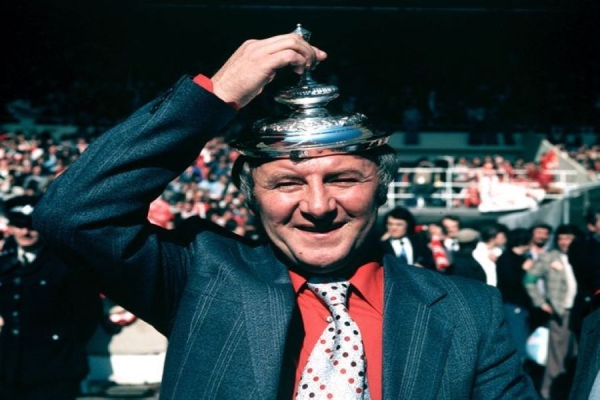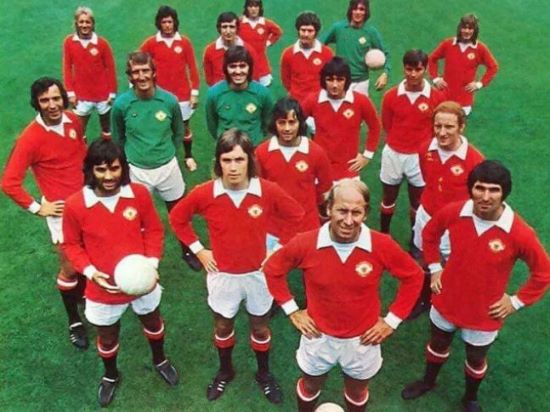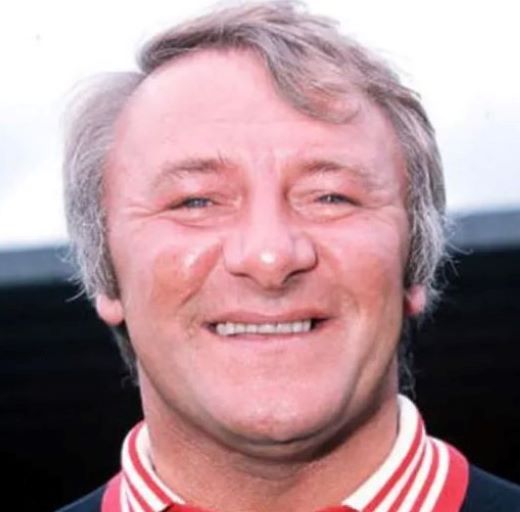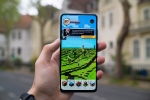The Cost of Loving – Tommy Doc’s Red & White Army
Written by Chris ClarkDid the King, Dennis Law, and the noisy neighbours relegate Man Utd, in 1974? Factually, no, in the memory of many football fans, yes. Six years after being crowned the kings of European football,
United was plummeting faster than a skydiver without a parachute towards the second tier of English football. To have any chance of staying up they needed to beat City, even though a win wouldn’t guarantee survival. They also needed results to go their way too. A win by Birmingham later in the same day meant it was all inconsequential, Had Utd beaten City they’d still have gone down. So, it was the Brummies that sent Utd down not, City!
Law didn’t know that; his instinctive back-heeled finish had just stuck a knife through his true loves heart and killed the club that canonised him. There was no raised fist from a disconsolate Dennis and minutes later a frustrated Stretford End boiled over, as fans sick and tired of watching this inept Utd team fail to fill the boots of their illustrious past, decided enough was enough and invaded the pitch. Substituted minutes later and aside from a couple of friendly pre-season games, Dennis never played professionally again.
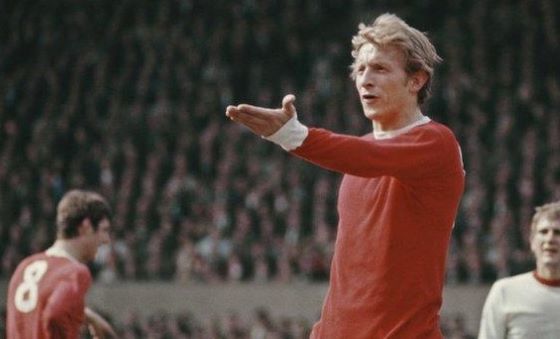
The man who sold The King to City was now the man who had also taken Utd into the second division. Arriving at Old Trafford in Dec of 1972 after witnessing a 5-2 defeat by Crystal Palace, Tommy Docherty was charged with restoring the Utd way, and halting the perpetual decline they’d been in since that glorious June evening in 1968. Sitting second bottom when he arrived, Utd survived the 1972-73 season, just, finishing 18th. Two-thirds of the holy trinity left that summer, Dennis to City, and Bobby Charlton retired. After a 3-0 New Year’s Day defeat to QPR, George Best jumped in a life raft and left the listing Utd for the very last time.
Utd needed a clear out, and the man they gave the broom to was Tommy Docherty. Current Scotland manager and ex-international player who had represented Scotland at two World Cup Finals, he also played almost 300 times for P.N.E, the Doc as he was known, was brash, confident and wisecracking. Whilst manager at 2nd Division Rotherham he said, “I promised I would take Rotherham out of the Second Division – and I took them into the Third. The old chairman said: ‘Doc, you’re a man of your word!”
He had skin as thick as a rhino, and the ego to match, he was exactly what a club of Utd’s statue required. They needed a man who wouldn’t be intimated by the club, the looming ever-presence of ‘Busby’ or a dressing room full of players, who whilst great servants were either approaching their sell-by date or simply weren’t good enough. Deadwood was killing the fire. With the holy trinity sacrificed, Doc needed new blood.
In came to centre half Martin Buchan, signed from Aberdeen, Belfast boy Sammy McIlroy, the last signing Busby made, and a player Doc tried to sign whilst at Rotherham, Brian Greenhoff. Add to these the attacking threat of Hull’s Stuart Person, (Pancho), the winged wonders of Tranmere’s Steve Coppull and Millwall’s Gordon Hill, (Merlin) and Utd were ready to face the mighty Leyton Orient away on the first day of the 1974/75 2nd Division season.
Unshackled by the baggage of expectation, Utd played with a verve and swagger they hadn’t produced for a long time. For the supporters, there was a circus feeling to the season, a sense of relief that their suffering had been cauterised. The Utd faithful swarmed to towns long since forgotten turning them Red & White. Away days to Portsmouth and Bristol, a gate of 15,000 at York City. Home crowds weren’t affected by a stint in the 2nd tier, 55,000 & 60,000 against Villa and Sunderland respectfully, with 59,000 fans watching a final day, 4-0 rout of Blackpool. The Red & White Army were back. They’d had to step back to step forward and whilst fans may have been sad to see the Leg-Ends leave, as The Doc called them, the team he was building, began to create new hero’s. The King was dead long live the King.
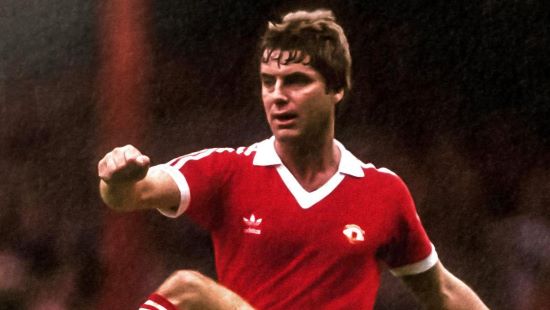
Starting the 1975/76 season as they finished the previous one, it took a November defeat by Liverpool to knock them off the top spot, they slipped to 3rd, where they eventually finished. A scintillating season of pulsating forward-thinking football wiped the bitterness of relegation from fans’ memories. With a 3rd place finish guaranteeing European football the following year, and an FA Cup final against 2nd Division Southampton to look forward to, Utd’s resurrection seemed complete. Even to the casual observer, they were clear favourites to win the Cup for the first time since beating Leicester in 1963. The Doc was confident. Why wouldn’t he be, that was his nature, plus Utd were an exciting attacking team, on the up, they would surely put the 2nd division minnows from the South coast to the sword.
Whilst Southampton were underdogs, odds to 7-1 being offered on them winning, they had a good squad, who finished only 4 pts of a promotion spot. England internationals Mick Channon and Peter Osgood, Bobby Stokes, and of course Jim MaCalliog an experienced Scottish international, who Doc had sold to Southampton at the start of the season.
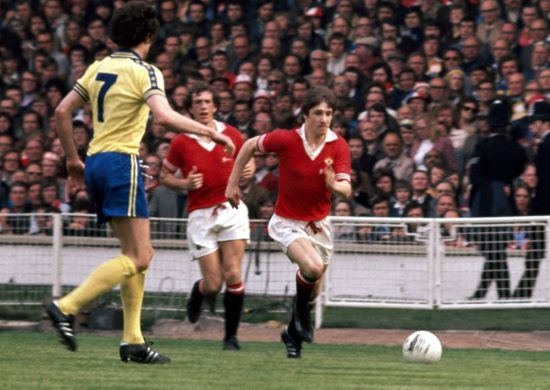
The game started as you’d expect, Utd, marauding through the Saint's defences created and failed to take numerous chances, denied by an impressive Ian Turner, the Saints keeper. As is the want with these kinds of games, the swell begins to subside, and Southampton grew into the game. Gordon Hill, one of Utd’s wing-wonders, was dragged off after 66 mins by Doc and replaced by David McCeery. A sign Utd was rattled according to Lawrie McMenemy, the Saints boss.
With just nine minutes left on that warm May afternoon clock, Ian Turner punted a goal kick upfield, where it landed with Jim MaCalliog. Socks rolled down around his ankles, MaCalliog plays a hopeful ball over the Utd defence, to no avail shouts for offside were made, and Bobby Stokes volleyed the ball past a stricken Alex Stepney, low into the bottom left corner, 1-0 to the underdogs. In one of the great cup upsets of all time, the Saints had popped Utd’s bubble. A game which should have crowned the return to the big time of Utd had been undone by an ex-player, again. The Doc bullish and undeterred, confidently stated they’d be back the following year, and this time they’d win it!
The 1976-77 season started inauspiciously for Doc’s Red and White army. Despite a 2-0 lead taken through Coppull & Person goals, Utd was pegged back to an opening day 2-2 draw with Birmingham. The season followed a similar pattern, new dawns were dashed by false starts, and a struggle to impose themselves on the season saw an eventual 6th place finish.
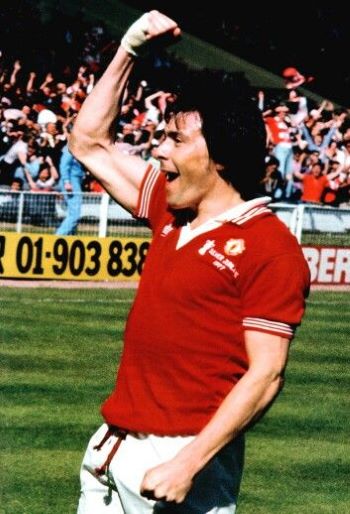
The football didn’t flow as well as the previous season. However, Utd did play some breath-taking football at times. An epic 3-1 win away at Maine Road, who now counted another ex Utd legend, Brian Kidd, amongst their ranks; and the overturning of Ajax in the ECWC felt like the seeds of re-establishment had been not only been sowed but were beginning to sprout. It took a storm in Stoke to finally add the piece of the jigsaw that would finally see Utd’s season click into gear.
Brian Greenhoffs brother Jimmy was acquired for £120k from a cash-strapped Stoke City that needed funds to repair a storm-damaged roof. J Greenhoff was a Stoke legend, dangerous, and two-footed, he scored 12 goals in his first half-season. A 6th place league finish and an ECWC exit at the hands of Juventus meant the FA Cup was Utds only chance of silverware. The Doc had promised the fans a return and not only that but a victory too.
Two 1-0 victories against Wallsall and QPR respectively were followed by a 2-1 revenge over their 1976 opponents Southampton and another 2-1 win over Aston Villa. This saw Utd into the semi-final draw along with Everton, Leeds, and Liverpool. The Merseyside teams drew each other, leaving Utd to face Leeds at Hillsborough. By 1977 Leeds were past their impervious best. However, the team was full of internationals and after all, this was a cup semi-final and it was against Man Utd.
There’s great footage on YouTube of the game. Leeds failed to clear a corner in the 7th minute which lead to a J Greenhoff volley in the box that opened the scoring. In the 15th minute, Steve Coppull struck another volley, this time from the edge of the box and at 2-0 Utd had a foot on the Wembley turf. A late flourish from Leeds and a penalty converted by Alan Clarke added a bit of drama. Yet, Utd held on and the Doc had at least kept one part of his promise. The Red & White army were heading back to the capital to face Liverpool, who needed a reply to get past Everton.
So, in the warm May sunshine, (the sun always seemed to shine of Cup Final day) 12 months after the disappointment of Southampton, Tommy Doc, sporting a red shirt under his suit, once again strode out onto the perfect Wembley pitch. Behind him the young, exciting, and entertaining team he’d rebuilt from the ashes of glorious memories and the dreams of thousands of Utd fans. At the side of him the domestically dominant, League Champions and European Cup finalists, Liverpool who having secured the League title and due to play Borussia Mönchengladbach, four days later, were in search of an unprecedented continental treble
Both teams created chances, both equally struggled to impose themselves on the game or, sustain any sort of momentum during a forgettable, scrappy, and scratchy first half. This changed in five second-half minutes that would give Utd their first silverware since that era-defining July night in 1968 and, would also prevent their great rivals from collecting the second trophy of a potential treble. In the 51st minute with the ball bouncing around in the centre circle, McIlroy hopefully headed it forward to J Greenhoff, who in turn flicked it deftly over the advancing Liverpool Capt Emlyn Hughes, to his advancing strike partner Pearson on the Utd right, he latched on the ball and from 15yrds fired it past Clemence at the near post. First blood to Utd, Pancho raced to the corner arm pumped in trademarked celebration.
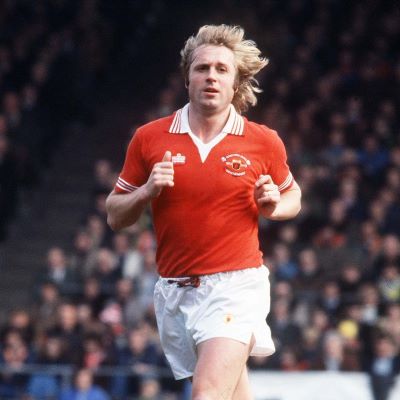
Straight from the re-start Liverpool pressed and took only 2 mins before they restored parity. Jones launched a long ball forward. Jimmy Case, playing in his first FA Cup Final, sublimely controlled the ball on his knee, flicked it up, swiveled, and fired a powerful right-foot volley past Stepney’s outstretched left hand. The Utd fans hadn’t finished singing nor had the team had a chance to get their breath before Liverpool were level.
A further two minutes later and courtesy of a bumbling deflection off J Greenhoff, Utd were back in front and despite Ray Kennedy hitting the woodwork and B Greenhoff nearly conceding an own goal, Tommy Docs promise had held true and Utd finally had their hands on a piece of silverware after nine long years. Or in Docherty’s case on his head. There’s a famous pic of him posing with the FA Cup atop of his head, a broad smile across his face beaming with pride it was splashed across many a paper at the time.
There’s a common perception amongst fans of a certain age that had Doc stayed at Old Trafford then it wouldn’t have taken Utd 25yrs to win another league title. He certainly had the ability to take a young squad, mould them into a successful, entertaining, coherent team capable of challenging and on their day beating anyone. He also had the ability to wear one of the heaviest coats in football with the lightness of a spring jacket. Like the next great Scotsman that followed, many ex-players thought the Doc was ruthless because he had the singlemindedness to believe in the need to clear out the changing room when it was required, and like SAF his only true loyalties lay to himself and to the club that paid his wages.
Two months later the man who restored Utd to the top table was sacked after the club bowed to a moral onslaught from the tabloid press. His affair with physio Jim Brown’s wife, Mary had become public. Utd chairman Louis Edwards hoped the scandal would blow over. However, after Doc was seen sporting a black eye given to him by Jim Brown, the writing was on the wall. Tommy Doc paid the price for falling in love, maybe the ultimate price, and he became, as he liked to call himself ‘The only man sacked for love’, but to Tommy, the cost of loving Mary was worth more than 20 Man Utds. It would be another 15yrs before the League title came back to Old Trafford, was the cost of loving worth that price to Utd?
Chris Clark
Latest from Chris Clark



